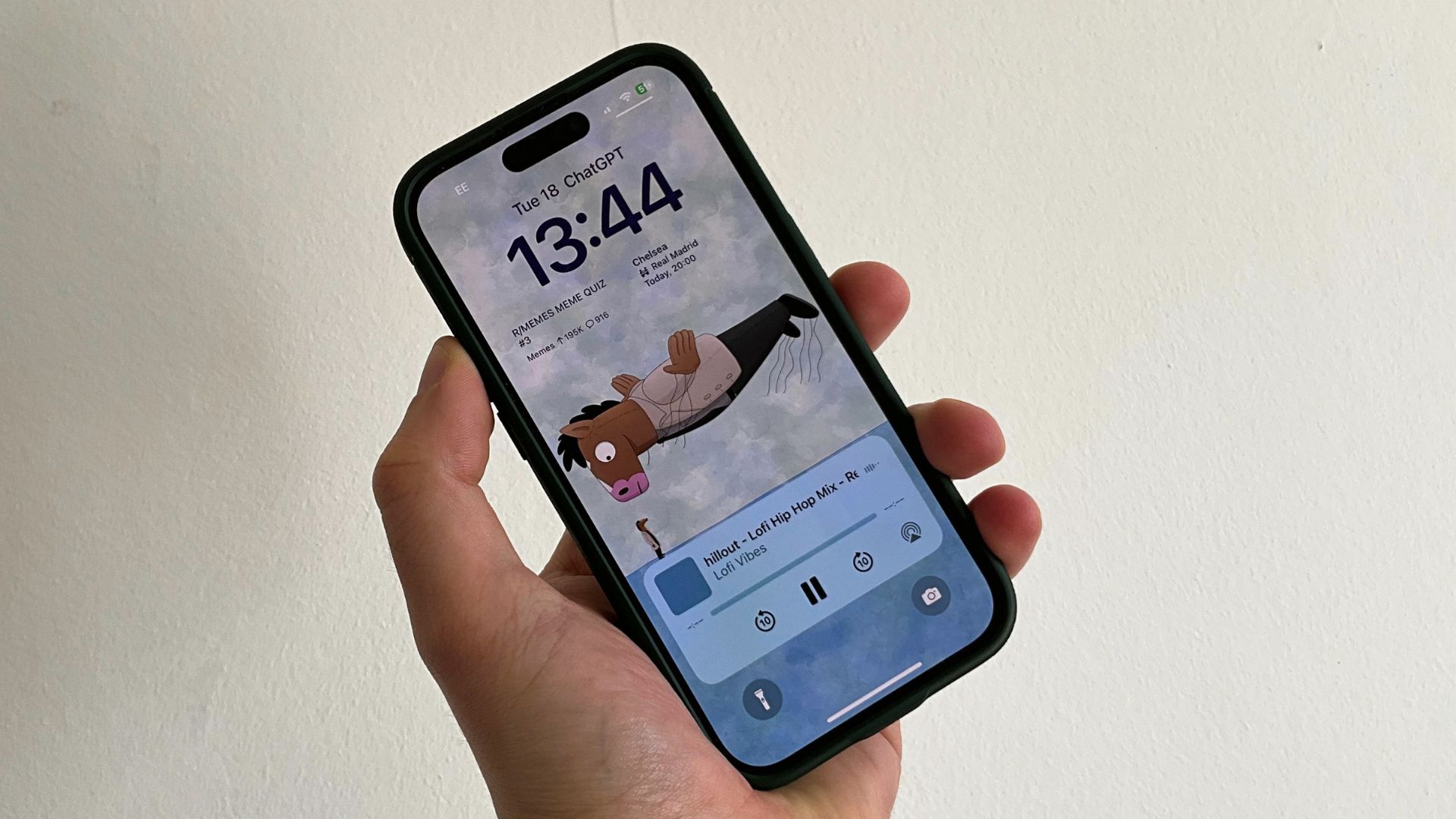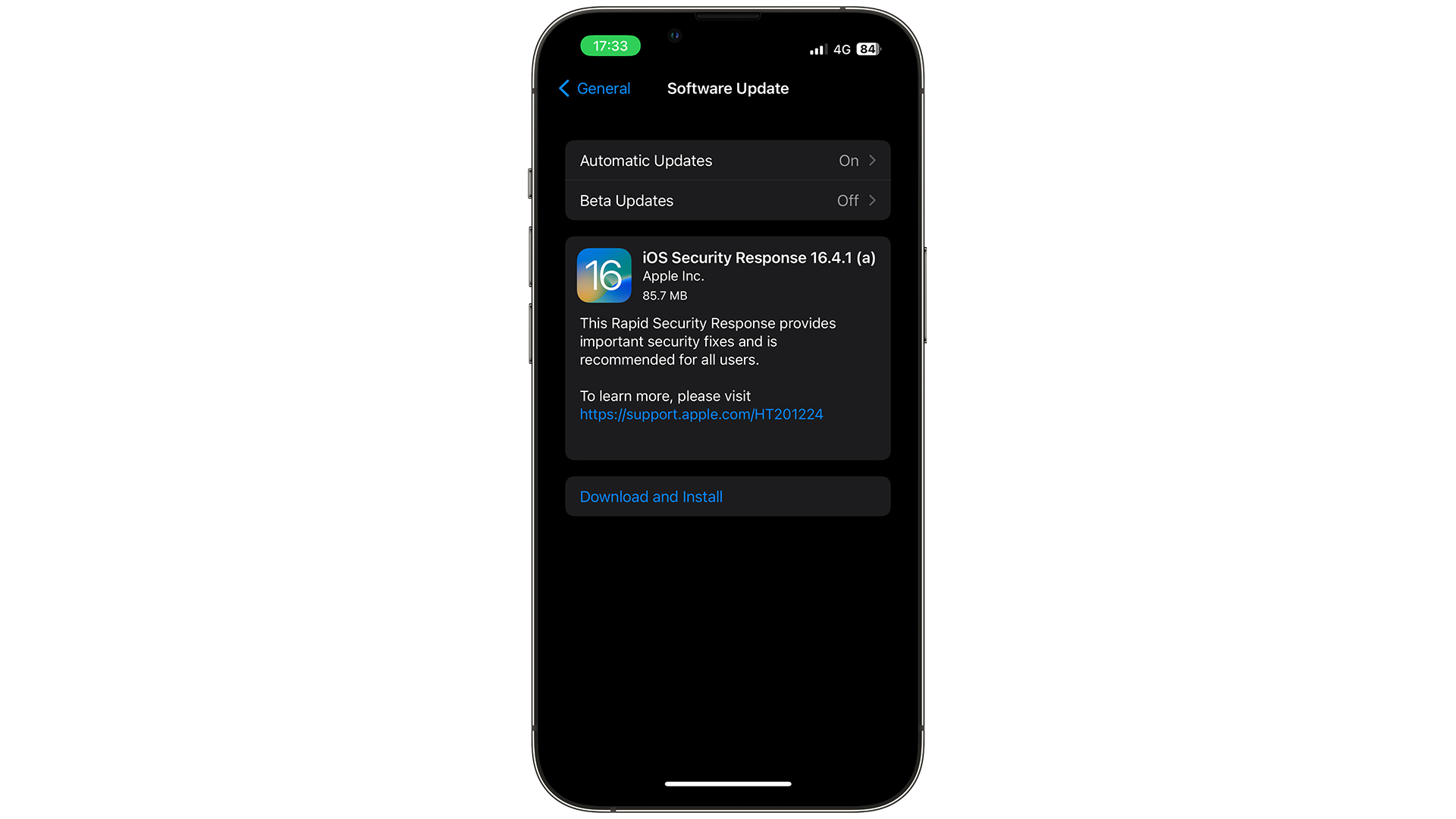
Apple released a surprise security patch for the iPhone on Monday, updating the smartphone's software to iOS 16.4.1a -- but the company offered exactly no other information about the security vulnerability.
The patch is part of a new protocol from the company called Rapid Security Response, and after testing them in the beta update channels, this type of update are now slowly rolling out to devices running iOS 16.4.1, iPadOS 16.4.1, and macOS 13.3.1.
For those unaware, these are much smaller updates that revolve around quashing exploits and vulnerabilities that hackers can try to use to steal your data from your iPhone, iPad, or Mac. "They deliver important security improvements between software updates," Apple said in a support article about the patch, and "may also be used to mitigate some security issues more quickly, such as issues that might have been exploited or reported to exist in the wild."
Apple did not immediately reply to iMore requests for more information about the security hole.
Previously, these sorts of security risks would have been part of bigger or minor software updates, but since these exploits need to be fixed quickly, this method is a much faster way of protecting your device.
If it hasn't appeared as a pop-up, go to Settings > General > Software Update > Automatic Updates on your iPhone or iPad, and make sure it's switched on. The update should then start to download and install.
If you're on a Mac, go to the Apple menu () > System Settings > Click General in the sidebar, then click Software Update to the right.
You should see the same Rapid Response Update as iPhone and iPad, ready to download and install as well.
What did this update fix?

Even though the Rapid Response Update is available to download with a link to this Apple Support page, it doesn't list the fixes that this update entails.
However, security fixes are usually listed on this page, so it may be a matter of Apple updating this page soon with what 16.4.1(a) fixes.
On the iMore team, we've all updated our devices with this update and reached out to Apple for comment as to what it's actually responded to.
Faster is always better

First announced last year, Rapid Response updates have been in testing ever since iOS 16, iPadOS 16, and macOS 13 Ventura were all released in beta for developers back in June 2022, and work has carried on ever since.
It seems as though Apple wanted to get this part right for all of its users, as it's obviously an important feature to download and install correctly every time a new exploit has been discovered.
This makes sense, especially when there are hundreds of millions of Apple devices out there. And with WWDC 2023 not too far away, there's inevitably going to be new betas for iOS 17, macOS 14 and everything else announced very soon.
But while this arguably could have been rolled out years ago, it's good that Rapid Response is finally here for your devices. It will save time in downloading a huge update such as iOS 16.2 that brought new features and bug fixes for example, and will also save on your data usage when connected to cellular data or a Wi-Fi service.







